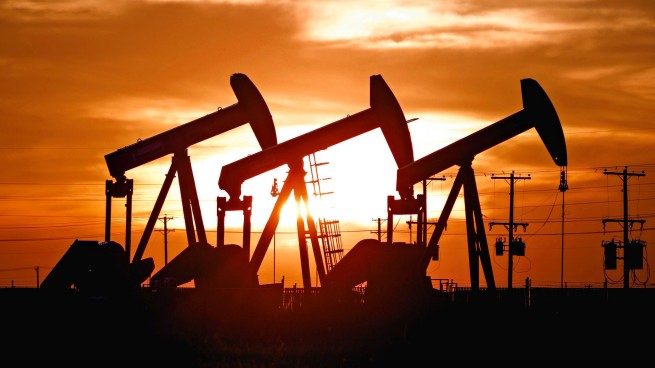In 2023, the number of new oil wells in Russia reached a record level, further proof of the country’s resilience to Western sanctions.
Oil boom
The country’s oil boom has been accompanied by a rise in the volume and value of Russian oil exports, reflecting the fact that Russia’s fossil fuels have become a critical source of funds for Vladimir Putin’s war in Ukraine, which enters its third year next month.
“Russia is much more independent in oil supplies than is commonly believed,” says Ronald Smith, Moscow-based oil and gas analyst at BCS Global Markets. Russia drilled oil wells to a total depth of 28,100 kilometers in the 11 months of 2023, according to industry data from Bloomberg. If this pace continues, the country will break last year’s record, which was the highest in the entire post-Soviet era.
The frantic pace of drilling against a backdrop of fairly static production volumes also indicates some long-term problems that may arise for the Russian oil sector as a result of Moscow’s international isolation. The industry is working hard to maintain production from old wells, while new projects that will support production in the coming decades must adapt to new conditions in the country.

According to analysts from the information company Kpler and a Moscow consultant “Yakov and partners” In 2023, a record number of production wells will be drilled across Russia as a whole – 30,000 kilometers. The increase in production comes despite pressure from Western countries on the country’s energy industry, which is a key source of funds for the Kremlin’s war in Ukraine. The sector is subject to a wide variety of sanctions, from import bans and price restrictions to a ban on technology exports.
Last year, the United States imposed sanctions against dozens of companies producing drilling equipment and developing new production technologies in order to “to limit Russia’s future mining capabilities.” The European Union introduced in 2022 “restrictions on the export of equipment, technologies and services for the Russian energy industry.”
The world’s two largest oil service providers are Halliburton Co. and Baker Hughes Co. – sold their Russian divisions and left the Russian market. Two other giants, SLB and Weatherford International, said they were continuing to operate in the country in accordance with the sanctions.
Failure of the West
Evidence suggests that the restrictive measures imposed by the West have largely failed. “Only about 15% of the domestic market of the Russian drilling sector depends on technologies from so-called hostile states”says Daria Melnik, vice president for exploration and production of the geological exploration company Rystad Energy A/s.
The departure of large Western oil service companies from Russia did not have a significant impact, since it largely left their local branches and infrastructure intact. These enterprises “they were mainly sold to the state, retaining the experience accumulated over the years”says Victor Katona, chief oil analyst at Kpler.

Russia’s sustainability
Record drilling volumes are a sign of Russia’s resilience to Western energy sanctions, but the pace of activity is also a warning sign. Over the years, historical data shows that the rise and fall of the country’s drilling volumes have largely coincided with changes in production volumes. However, in 2023, the drilling boom occurred simultaneously with Moscow’s production cuts and the Organization of Petroleum Exporting Countries. This suggests that a high level of activity in the extractive sector is necessary simply to maintain production.
“The main reason for the increase in drilling in Russia is the need to launch new oil wells, – says Gennady Masakov, director of the Center for Research and Analytics of Yakov and Partners, “New oil wells need to be launched as the fields that currently produce oil are depleted.”
According to a study by the Oxford Institute for Energy Studies, by 2022, fields operating for more than five years will account for almost 96% of total production in Russia. Many of these projects have significantly exceeded peak production levels, the documents show.
“Natural decline is a common factor” for the country’s oil industry, says Sergei Vakulenko, an industry veteran who spent 10 years of his 25-year career as a senior executive at a Russian oil production company.







More Stories
Congressmen warn ICC about sanctions because of Netanyahu
From November 1st, an electronic conscription system will be launched in the Russian Federation.
In a Ukrainian circus, child acrobats fell from a height (video)